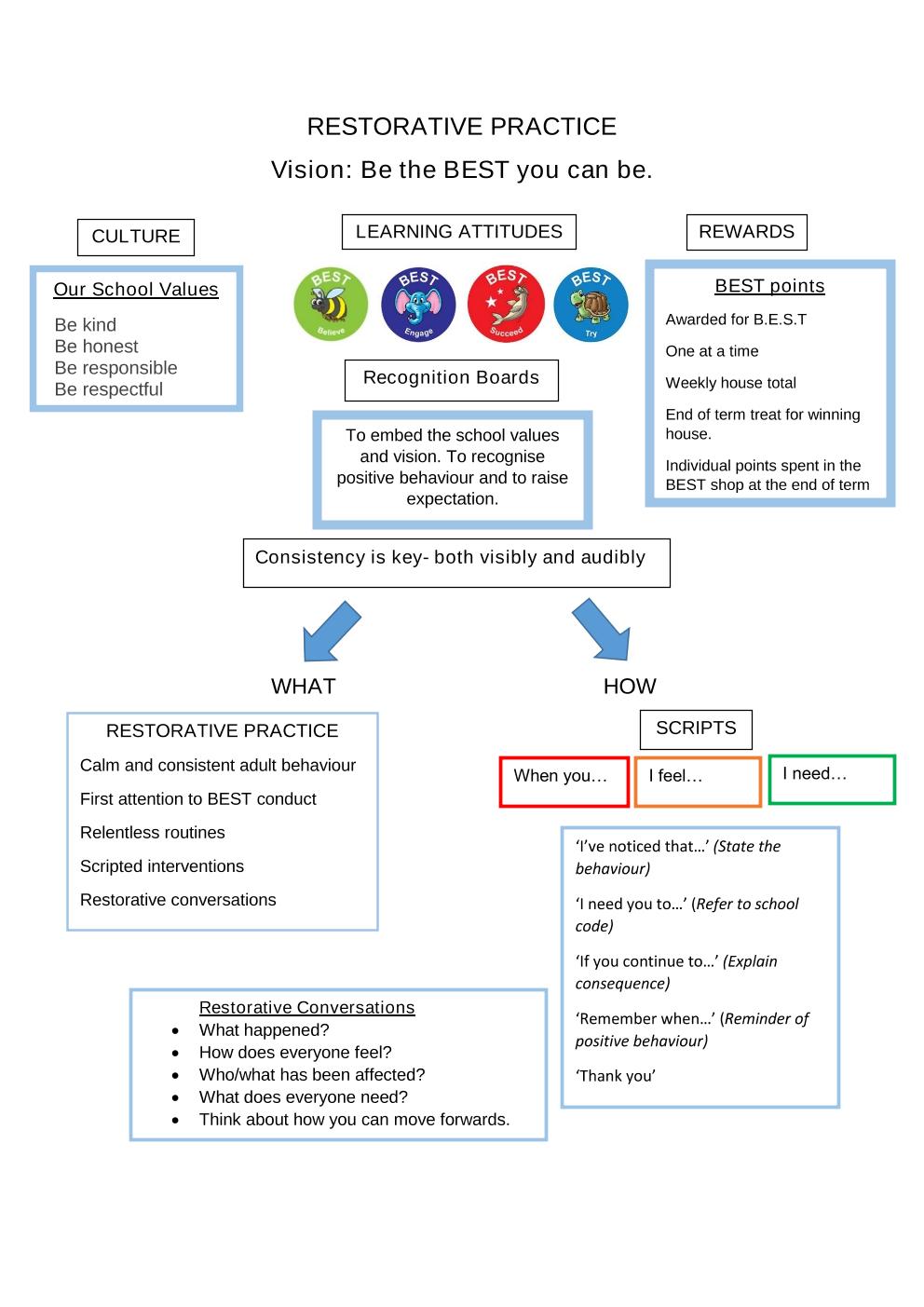Thrive & Restorative Practice
 A neuroscience and psychology-based approach to helping children and young people thrive.
A neuroscience and psychology-based approach to helping children and young people thrive.
Our academy is a Thrive school. We help children and young people become more emotionally resilient and better placed to engage with life and learning.
We do this through our whole-school approach to wellbeing - proven to improve attendance, behaviour and attainment.
It helps our children learn about their emotions and regulate their own behaviour.
By practicing Thrive we understand what children and young people are trying to communicate through their behaviour - so we can promote their positive mental health, improve their ability to learn, and open their doors to a bright future.
- More Information - Thrive - External Link - Thrive Approach
 For effective teaching and learning to take place, we believe that good relationships need to be at the heart of everything that happens at our school.
For effective teaching and learning to take place, we believe that good relationships need to be at the heart of everything that happens at our school.
Restorative Practice is term used to describe principles, behaviours and approaches which build and maintain healthy relationships and a sense of community and can resolve difficulties and repair harm where there has been conflict. It is a way of being with people, essentially to work with and alongside others to create sustainable change.
In our school Restorative Approaches provide a structured and consistent response to the inevitable incidents of conflict that arise in the life of a school. The benefits of improved conflict resolution in school leads to reduced disruption of teaching and learning, improved relationships and a calmer school environment.
In addition to the conflict resolution benefits, Restorative Approaches have been shown to develop people’s social and emotional competencies, such as increased empathy, improved self-discipline and more responsible decision-making. These benefits contribute to pupils’ personal, social and moral development.
Restorative language helps shift the focus away from blame and shame and focuses on the causes, needs and repair.
Please ask for a copy of our restorative conversation cards that support children to have a structured conversation in a fair and supported way.
Restorative practices involve high challenge for children which staff compliment with high support.
We believe relationships matter.
Restorative practice overview

